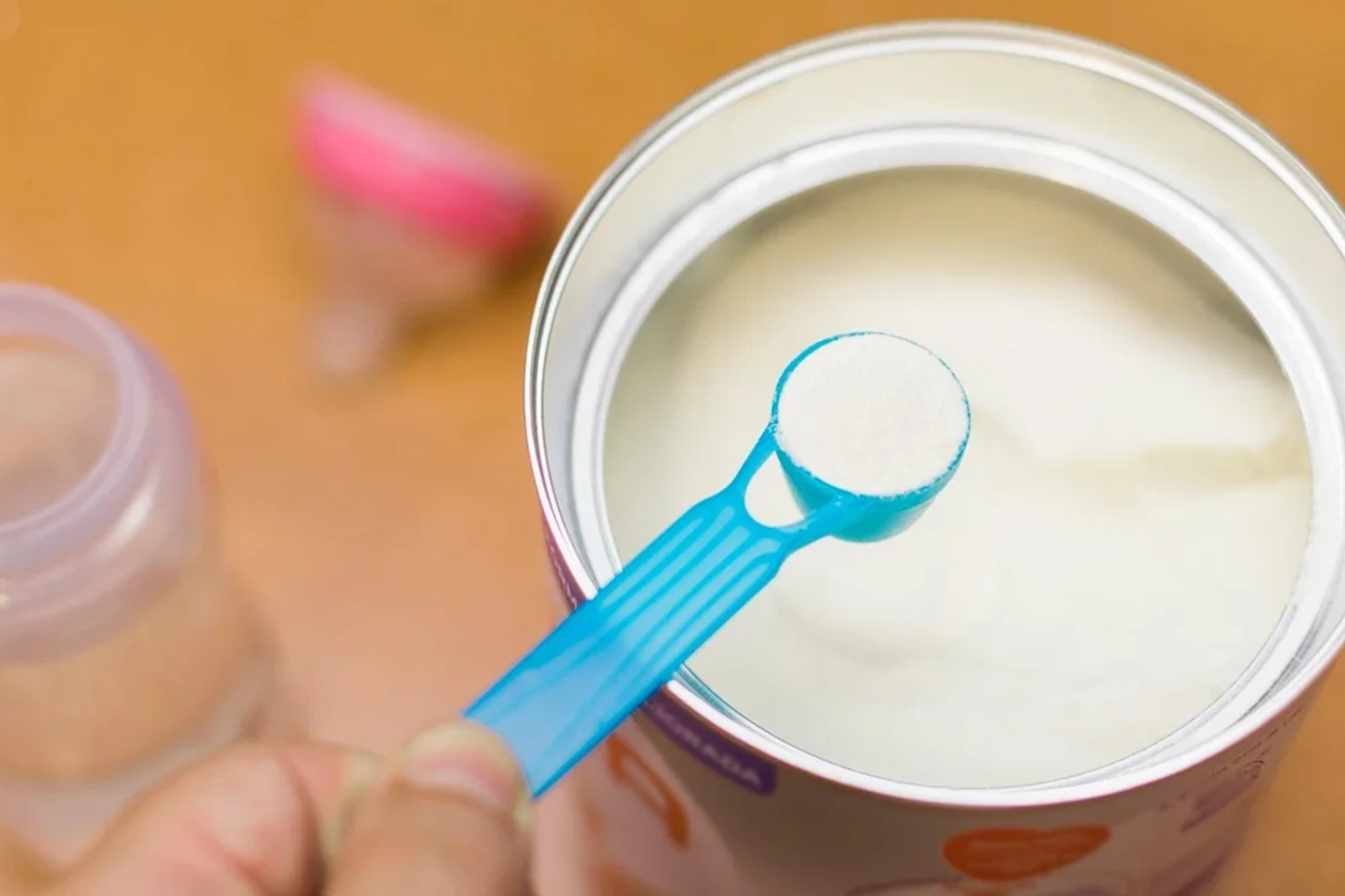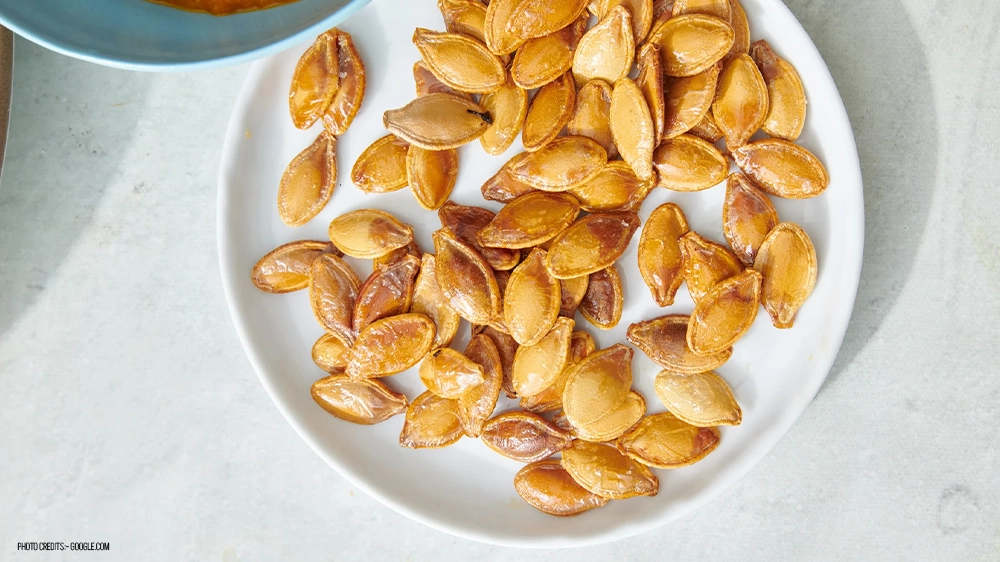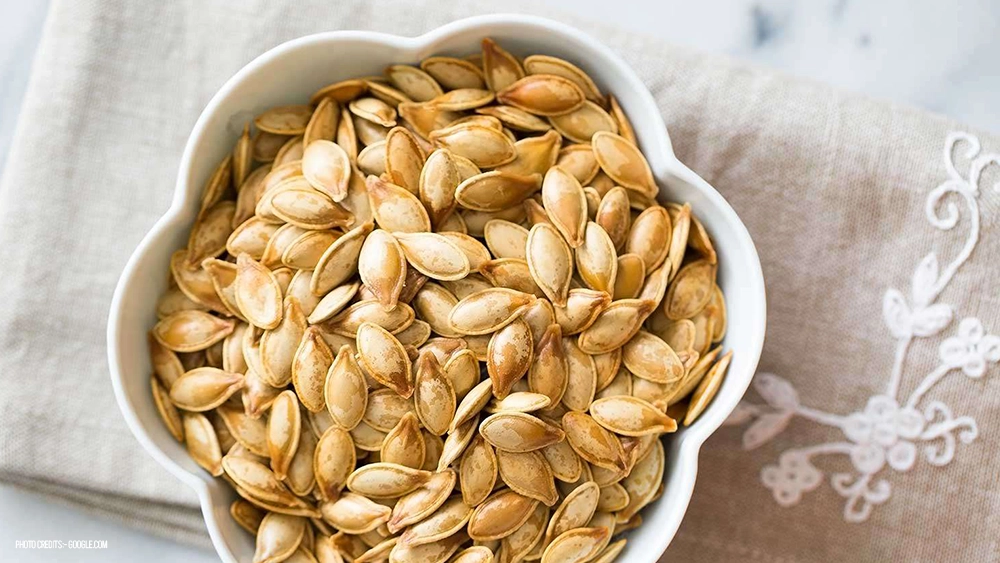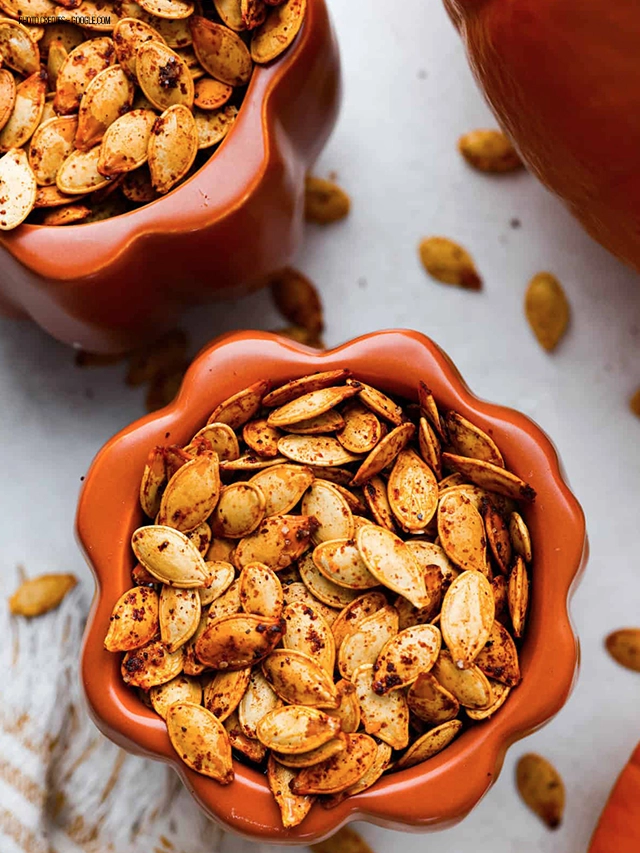
HEALTH BLOG
Pumpkin Seed Nutrition: From Heart Health to Immunity
-
Rahul Priydarss
Pumpkin seed nutrition offers a range of health benefits, making these seeds a nutritious addition to any diet. Packed with protein, fiber, healthy fats, and essential minerals like magnesium, zinc, and iron, pumpkin seeds support heart health, boost immunity, and help regulate blood sugar levels. These nutrient-dense seeds are also beneficial for men’s prostate health, women’s hormone balance, and overall digestion. Discover why pumpkin seeds are a powerhouse superfood, how to incorporate them into meals, and the best ways to store them for optimal freshness. Explore the impressive nutritional profile of pumpkin seeds and their benefits in this detailed guide.
Introduction to Pumpkin Seed Nutrition:
Pumpkin seeds are a powerhouse of essential nutrients, packed with protein, healthy fats, vitamins, and minerals that contribute significantly to overall wellness. These small but mighty seeds have gained popularity as a versatile health food, enjoyed in both culinary dishes and as a standalone snack. Rich in magnesium, zinc, and antioxidants, pumpkin seeds (or Cucurbita pepo seeds) are highly valued for their dense nutrient profile and myriad health benefits.
Whether you’re looking to improve heart health, enhance immune function, or support digestive well-being, pumpkin seeds provide a wealth of nutrients to help meet your health goals. In this detailed guide, we’ll cover everything you need to know about pumpkin seed nutrition, from the key nutrients they offer to how they support various aspects of health. Plus, we’ll discuss the best ways to incorporate pumpkin seeds into your diet and provide tips on buying and storing them for maximum freshness and nutrition.
What Makes Pumpkin Seeds Nutritionally Dense:
Pumpkin seeds are small but packed with a remarkable array of nutrients that make them an excellent addition to a balanced diet. These seeds are rich in protein, fiber, healthy fats, and a range of essential vitamins and minerals, making them a nutrient-dense choice for anyone looking to boost their intake of vital nutrients.
One of the standout features of pumpkin seeds is their high content of healthy fats, particularly monounsaturated and polyunsaturated fats. These fats are essential for heart health and play a crucial role in brain function and cell growth. Pumpkin seeds are also an excellent source of antioxidants, which help protect the body from oxidative stress and reduce inflammation.
In addition to fats, pumpkin seeds are packed with protein, making them especially beneficial for vegetarians and vegans who may need alternative protein sources. Just a quarter-cup serving provides a substantial amount of protein, along with fiber that aids in digestion and helps keep blood sugar levels steady.

Table of Contents
Key Nutrients Found in Pumpkin Seeds:
Pumpkin seeds contain a wide variety of essential nutrients that are beneficial for many aspects of health. Let’s dive into some of the key nutrients you’ll find in these seeds:
- Magnesium: One of the most abundant minerals in pumpkin seeds, magnesium is vital for many bodily functions, including energy production, muscle and nerve function, and bone health. Just one ounce of pumpkin seeds provides nearly 40% of the recommended daily intake of magnesium.
- Zinc: Known for its role in supporting immune health, wound healing, and cell production, zinc is another important mineral found in pumpkin seeds. Zinc is also essential for reproductive health and plays a role in maintaining skin health and DNA synthesis.
- Iron: Pumpkin seeds are a good source of iron, a mineral essential for transporting oxygen in the blood and supporting energy production. Regular intake of iron-rich foods like pumpkin seeds can help prevent iron-deficiency anemia.
- Phosphorus: This mineral plays a crucial role in maintaining bone health and energy production. Phosphorus is necessary for the formation of strong bones and teeth and is involved in the body’s energy metabolism.
- Vitamin K: Important for blood clotting and bone health, vitamin K is another nutrient present in pumpkin seeds. It helps maintain bone density and is crucial for healing wounds.
- Copper and Manganese: These trace minerals contribute to antioxidant activity, support collagen production, and promote bone health. Copper aids in forming red blood cells, while manganese is essential for bone health and metabolic functions.
Collectively, these nutrients support a wide range of bodily functions, from immune support and cardiovascular health to energy production and hormone balance. Including pumpkin seeds in your diet can help you meet daily nutritional requirements and enhance overall wellness.
Health Benefits of Pumpkin Seeds:
Pumpkin seeds offer an impressive range of health benefits, making them a valuable addition to a healthy diet. Here’s a deeper look into some of the most notable health advantages of consuming pumpkin seeds.
1. Heart Health Support: Pumpkin seeds contain heart-healthy fats, specifically omega-6 and omega-3 fatty acids, which help reduce the risk of cardiovascular disease. These unsaturated fats work to lower bad cholesterol (LDL) levels while raising good cholesterol (HDL) levels, which is beneficial for heart health. Additionally, the magnesium in pumpkin seeds helps regulate blood pressure, which can further reduce the risk of heart disease.
Antioxidants in pumpkin seeds also play a role in supporting heart health. By combating oxidative stress, these antioxidants help protect blood vessels from damage, which may help prevent atherosclerosis—a condition characterized by the buildup of plaque in the arteries.
2. Immune System Boost: Thanks to their high zinc content, pumpkin seeds are a great way to boost the immune system. Zinc is essential for immune cell function and helps protect against infections by regulating immune responses and reducing inflammation. People with low zinc levels may experience weakened immunity, making pumpkin seeds a good option to help meet daily zinc requirements.
Antioxidants in pumpkin seeds, such as vitamin E, also support immune health by fighting free radicals. This antioxidant activity is beneficial for reducing chronic inflammation, which can otherwise weaken the immune system over time.
3. Digestive Health and Weight Management: Pumpkin seeds are a great source of dietary fiber, which is essential for digestive health. Fiber helps regulate bowel movements, reduces constipation, and promotes the growth of healthy gut bacteria. By supporting digestive health, pumpkin seeds also contribute to maintaining a balanced weight, as fiber can promote a feeling of fullness and reduce overall calorie intake.
Eating pumpkin seeds as part of a fiber-rich diet can also help stabilize blood sugar levels, preventing blood sugar spikes and crashes that can lead to cravings and overeating. This makes pumpkin seeds an excellent snack for those looking to manage their weight or maintain healthy blood sugar levels.
How Pumpkin Seeds Can Benefit Men’s Health:
Pumpkin seeds are particularly beneficial for men’s health, due in large part to their high zinc content, which plays a vital role in prostate health. Studies have shown that men who consume foods rich in zinc may have a reduced risk of benign prostatic hyperplasia (BPH), a common condition characterized by an enlarged prostate. This is important for overall male reproductive health, as an enlarged prostate can lead to urinary issues and discomfort.
Additionally, the presence of antioxidants in pumpkin seeds can help protect against prostate cancer by reducing oxidative stress, which is linked to cancer development. The nutrient profile of pumpkin seeds, including zinc and other antioxidants, supports sperm quality and fertility by reducing damage to sperm cells.
Pumpkin Seeds and Male Fertility:
Men who regularly consume zinc-rich foods like pumpkin seeds may experience improved sperm quality, as zinc has been shown to positively influence sperm count, motility, and morphology. This is especially beneficial for men trying to improve fertility, as healthier sperm increase the likelihood of successful conception.

How Pumpkin Seeds Can Support Women’s Health:
Pumpkin seeds are not just beneficial for men; they also provide essential nutrients that are particularly beneficial for women. One of the most notable benefits is their high iron content, which is especially important for women who need higher levels of iron due to menstruation. Regular consumption of pumpkin seeds can help support energy levels and reduce the risk of iron-deficiency anemia.
Managing PMS Symptoms with Pumpkin Seeds:
Pumpkin seeds are a natural source of magnesium, a mineral that has been shown to help alleviate PMS symptoms, including bloating, cramps, and mood swings. Magnesium has a calming effect on muscles, which can help ease menstrual cramps, while its mood-regulating properties can help manage irritability and stress.
Additionally, pumpkin seeds contain phytoestrogens, plant-based compounds that may help balance estrogen levels, which can be especially helpful for women going through menopause. Phytoestrogens may reduce symptoms like hot flashes and promote hormonal balance.
Blood Sugar Regulation with Pumpkin Seeds:
The fiber and protein content in pumpkin seeds makes them a great food for maintaining steady blood sugar levels. Both fiber and protein slow down the absorption of glucose into the bloodstream, which can help prevent rapid spikes in blood sugar levels after meals. This is particularly beneficial for individuals with diabetes or those at risk of developing diabetes, as it helps to keep blood sugar levels within a healthy range.
Magnesium, another key nutrient in pumpkin seeds, is known to improve insulin sensitivity, which can further aid in blood sugar control. Studies have shown that people with higher magnesium intake have a lower risk of type 2 diabetes, making pumpkin seeds an excellent choice for those managing blood sugar.
Best Ways to Incorporate Pumpkin Seeds into Your Diet:
Pumpkin seeds are versatile and can easily be added to various dishes for a nutritional boost. Here are some delicious and creative ways to enjoy pumpkin seeds.
- Sprinkle on Salads: Add a handful of pumpkin seeds to your favorite salad for extra crunch and nutrition.
- Add to Oatmeal or Yogurt: Pumpkin seeds make a great addition to oatmeal or yogurt bowls, providing a protein-packed start to your day.
- Include in Baked Goods: Use pumpkin seeds in bread, muffins, or granola bars for added texture and nutrients.
- Blend into Smoothies: Blend pumpkin seeds into your smoothies for a natural source of healthy fats and fiber.
- Use as a Topping for Soups: Garnish soups with pumpkin seeds to add flavor and a satisfying crunch.
Roasted pumpkin seeds are a popular choice, but it’s best to roast them at low temperatures to preserve their healthy fats and nutrients. Try seasoning them with herbs and spices, such as chili powder, garlic powder, or a sprinkle of sea salt, for a tasty snack.
Best Practices for Buying and Storing Pumpkin Seeds:
To ensure you’re getting the most nutritional value from pumpkin seeds, it’s essential to choose high-quality seeds and store them properly.
Buying Tips: Look for raw, unsalted pumpkin seeds to avoid added sodium and retain maximum nutrients. Organic pumpkin seeds are preferable, as they are free from pesticides and chemicals.
Storage Tips: Store pumpkin seeds in an airtight container in a cool, dry place to keep them fresh. If you buy in bulk, keep a portion in the refrigerator or freezer to extend shelf life and prevent them from becoming rancid.
FAQs about Pumpkin Seed Nutrition :
A1: Pumpkin seeds are rich in protein, healthy fats, fiber, magnesium, zinc, and antioxidants.
A2: The healthy fats, fiber, and antioxidants in pumpkin seeds help reduce cholesterol and support cardiovascular health.
A3: Yes, pumpkin seeds are high in fiber, which supports healthy digestion and prevents constipation.
A4: Yes, pumpkin seeds contain nutrients that help stabilize blood sugar levels.
A5: Store pumpkin seeds in an airtight container in a cool, dry place, or refrigerate to keep them fresh longer.

-Please remember, to always consult with healthcare professionals or Doctors for personalised advice related to medical conditions.
Conclusion:
In summary, pumpkin seed nutrition offers a wealth of health benefits, making these small seeds a valuable addition to any diet. Rich in protein, healthy fats, fiber, and essential minerals like magnesium and zinc, pumpkin seeds support heart health, immunity, digestion, and blood sugar balance. They’re also beneficial for men’s prostate health, women’s hormone balance, and overall well-being. Versatile and easy to incorporate into meals, pumpkin seeds provide a nutrient-dense boost to both sweet and savory dishes. Embrace pumpkin seeds in your daily diet to harness their powerful nutrients and elevate your health naturally.




